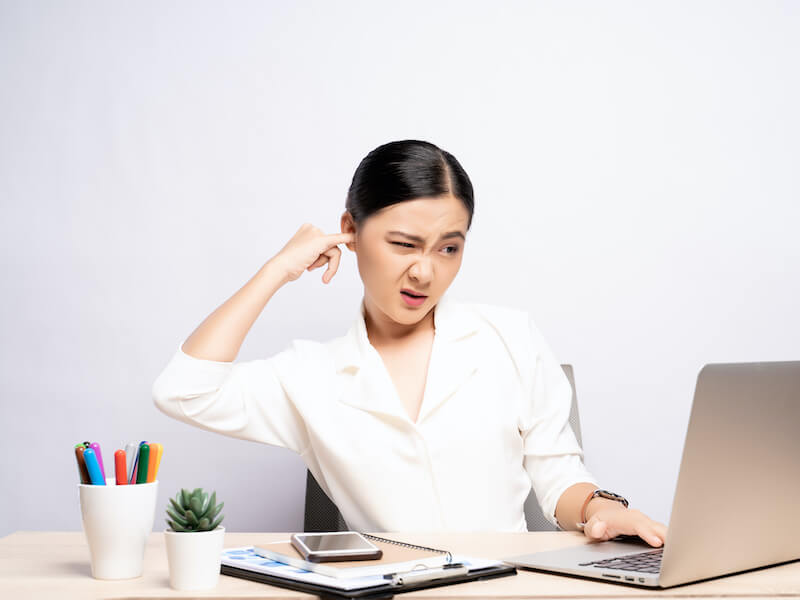
We’ve all experienced that itch that seemed impossible to reach.
Alright, there are two ways to think about it: First, you think about something you always wanted to do in life but so far you haven’t got around to (skydiving, for instance). Or, if you’re a bit less of a romantic, you consider that spot on your back that you just can’t quite reach.
That’s really frustrating! Desperately attempting to scratch that itchy spot on your back. It’s why back-scratchers exist.
Sadly, there isn’t a device that can get rid of itching inside of your ears. No matter how hard you try, you just can’t reach up into your ear canal where it’s itching. If you’re ear itches like this, it’s even more aggravating than that spot on your back.
Your daily life can be affected by itchy ears
At first glance, it sounds like a small thing. Itchy ears? It could be worse, right? At least you’re not in terrible pain.
But think about it: There’s no relief for an itchy ear. No fuss, if it only happens from time to time. But what if your ears are constantly itchy? It might end up having a real impact on your quality of life.
Maybe the experience is so uncomfortable that you stop going out for dinner or spending time with friends. Or perhaps you attempt to overwhelm the sensation by listening to overly loud music.
It sucks. But treatments and solutions do exist. Knowing what’s causing your itchy ears is the first measure to finding a suitable treatment.
So what causes your ears to itch?
So what’s the cause of that itch? And what’s the solution? Depending on the underlying cause, itchy ears will have differing solutions. As with most other medical conditions, there are numerous possible root conditions that might be affecting your ears. Here are some of the most common:
- You have an earwax blockage: If your ears are creating a significant amount of wax, that’s not abnormal. You might be surprised to find out that wax is actually cleaning your ears. But there are a number of reasons why blockages can form. One reason is because of the use of cotton swabs to “clean” your ears, so if that’s happening, you should stop immediately. In any case, we should be able to remove most earwax blockages. So you will get some relief by scheduling an appointment with us.
- Improper hearing aid fitting: Your hearing aids should fit into your ears snugly. That’s how you get the optimum sound and the most successful results. But when your hearing aids don’t fit correctly, this snugness can quickly turn to irritation and itchiness. This, as a result, can cause you to stop using your hearing aids as often, and that can be detrimental to your hearing. The solution is to come in and consult us for a proper fitting. We might even be able to mold your hearing aid so it better fits your ear.
- Skin disorders: Sometimes, a skin condition can cause a response in spots you can’t reach. You can even end up with something called ear dandruff. Your doctor will be able to help you determine what your solutions are. It isn’t exactly easy to slather your ear canal with moisturizer, after all, nor would we ever suggest you try. If you have this kind of skin condition, your doctor is, once again, your best bet.
- Ear infections: That’s correct, the source of your itchy ears can be a normal ear infection. Common in youth, ear infections can continue to strike at any time. Ear infection can cause an accumulation of fluid in your ear. In addition, the tissues in your ears can start to become inflamed. Combined, this can lead to trapped fluid, irritated tissue, and very itchy ears. Addressing the infection with your doctor’s help is the solution. Your ears will usually stop itching when the infection clears up.
- Allergies: Allergies are tricky, and it’s not uncommon for them to cause itching. In some cases, an over-the-counter allergy medicine, like an antihistamine, can ease itching caused by allergies. It’s often challenging to figure out exactly what you’re having an allergic reaction to. But itchy ears can be a consequence of a wide variety of allergens, including pollen. So your spring hay fever could quickly translate into itchy ears. If the itching persists, you should speak with an allergist about finding a solution (and relief).
Getting treatment for your itchy ears, and relief
Just about every activity becomes less fun with itchy ears. Finding the correct treatment, and getting sustained relief can be completely life changing. Often, these itchy ears will not clear up on their own (and if they do, it’ll feel like it takes ages), so there’s no point in trying to wait it out, you’ll probably just prolong your suffering.
Stop focusing on your itchy ears and go back to enjoying your life. Give us a call for a consultation.